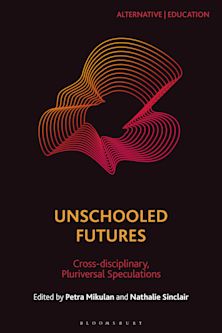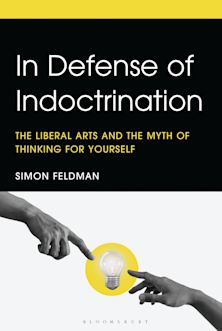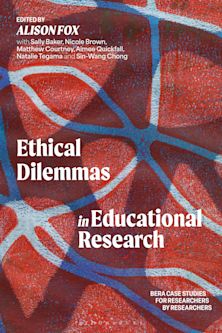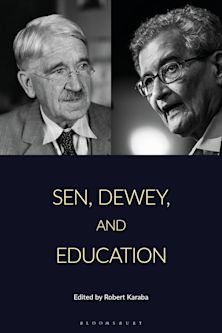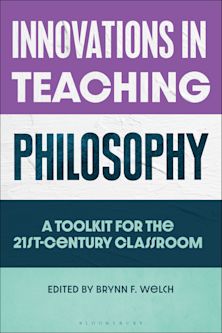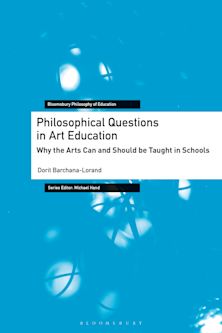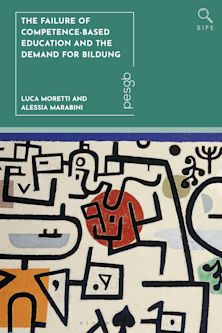The Ethics of Digital Literacy
Developing Knowledge and Skills Across Grade Levels
The Ethics of Digital Literacy
Developing Knowledge and Skills Across Grade Levels
This product is usually dispatched within 3 days
- Delivery and returns info
-
Free CA delivery on orders $40 or over
Description
The digital era has brought many opportunities - and many challenges - to teachers and students at all levels. Underlying questions about how technologies have changed the ways individuals read, write, and interact are questions about the ethics of participation in a digital world. As users consume and create seemingly infinite content, what are the moral guidelines that must be considered? How do we teach students to be responsible, ethical citizens in a digital world?
This book shares practices across levels, from teaching elementary students to adults, in an effort to explore these questions. It is organized into five sections that address the following aspects of teaching ethics in a digital world: ethical contexts, ethical selves, ethical communities, ethical stances, and ethical practices.
Table of Contents
Dominic Scibilia
Foreword
Antero Garcia
Introduction
Kristen Hawley Turner
Section 1: Ethical Contexts
Chapter 1: Meditation
Nicole Mirra
Chapter 2: Access, Readiness, and the Ethical Imperative of Advocacy
Lauren King and Kristen Hawley Turner
Chapter 3: Seeing Each Other Ethically Online
Derek Burtch and Amanda Gordon
Section Reflection
Kristen Hawley Turner
Section 2: Ethical Selves
Chapter 4: Meditation
Sara B. Kajder
Chapter 5: The Ethical Mandate for Shaping Digital Footprints: Reflections from Teachers
Susan Luft and Paul Tomizawa
Chapter 6: The Ethics of Composing: Identity Performances in Digital Spaces
Brandon Sams and Mike P. Cook
Chapter 7: Creatures of Habit: Self Reflexive Practices as an Ethical Pathway to Digital Literacy
Andrea L. Zellner and Leigh Graves Wolf
Section Reflection
Kristen Hawley Turner
Section 3: Ethical Communities
Chapter 8: Meditation
W. Ian O’Byrne
Chapter 9: Creating Online Communities: Fostering Understanding of Ethics and Digital Citizenship
Jade Feliciano
Chapter 10: Moving Beyond Troll Rhetoric and Facilitating Productive Online Discourse
Priscilla Thomas and Alex Corbitt
Chapter 11: Fostering Cosmopolitan Dispositions through Collaborative Classroom Activities:
Ethical Digital Engagement of K-12 Learners
Aaron R. Gierhart, Sarah Bonner, Anna Smith, and Robyn Seglem
Chapter 12: Online with Intention: Promoting Digital Health and Wellness in the Classroom Lauren Zucker and Nicole Damico
Section Reflection
Kristen Hawley Turner
Section 4: Ethical Stances
Chapter 13: Meditation
Troy Hicks
Chapter 14: Designing for Power, Agency, and Equity in Digital Literacies: New Tools, Same Problems
Katie Henry and Bud Hunt
Chapter 15: Educators discussing ethics, equity, and literacy through collaborative annotation
Jeremiah H. Kalir and Joe Dillon
Chapter 16: “It’s Whatever”: Students’ Digital Literacy Experiences in a Title 1 High School
Lisa Scherff
Section Reflection
Kristen Hawley Turner
Section 5: Ethical Practice
Chapter 17: Meditation
Renee Hobbs
Chapter 18: “Where did I find that?” Helping Students Develop Ethical Practices in Digital Writing
Kristen Hawley Turner
Chapter 19: Beyond quotations: Fostering Original Thinking during Research in the Digital Era
Michelle C. Walker, Monica Sheehan, and Ramona Biondi
Chapter 20: The Ethical Dilemma of Satire in an Era of Fake News and the Brave New World of Social Media
P. L. Thomas
Section Reflection
Kristen Hawley Turner
Product details
| Published | Dec 11 2019 |
|---|---|
| Format | Paperback |
| Edition | 1st |
| Extent | 200 |
| ISBN | 9781475846768 |
| Imprint | Rowman & Littlefield |
| Illustrations | 23 b/w photos; 2 tables; 2 textboxes |
| Dimensions | 221 x 152 mm |
| Series | Teaching Ethics across the American Educational Experience |
| Publisher | Bloomsbury Publishing |
Reviews

ONLINE RESOURCES
Bloomsbury Collections
This book is available on Bloomsbury Collections where your library has access.













